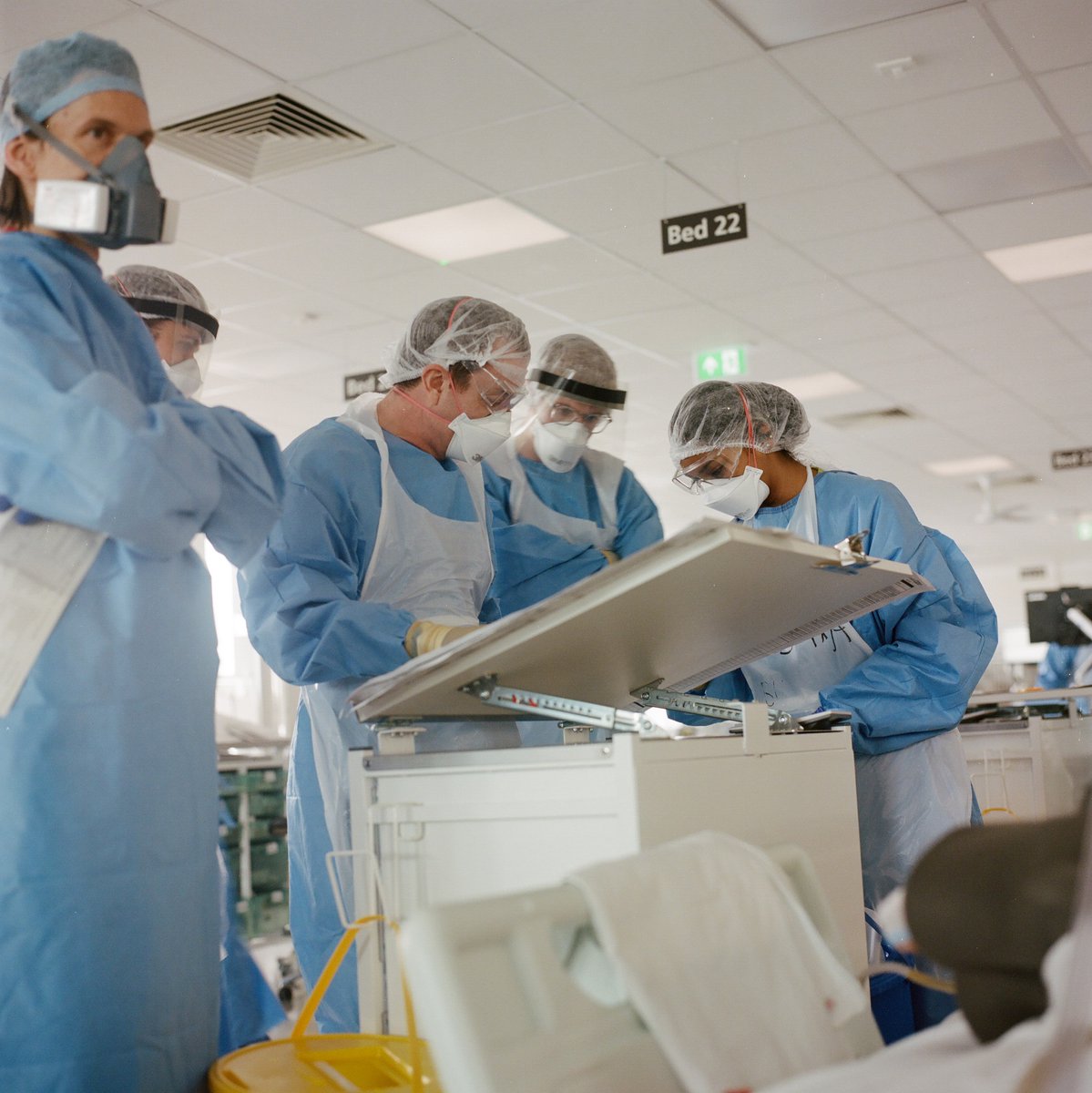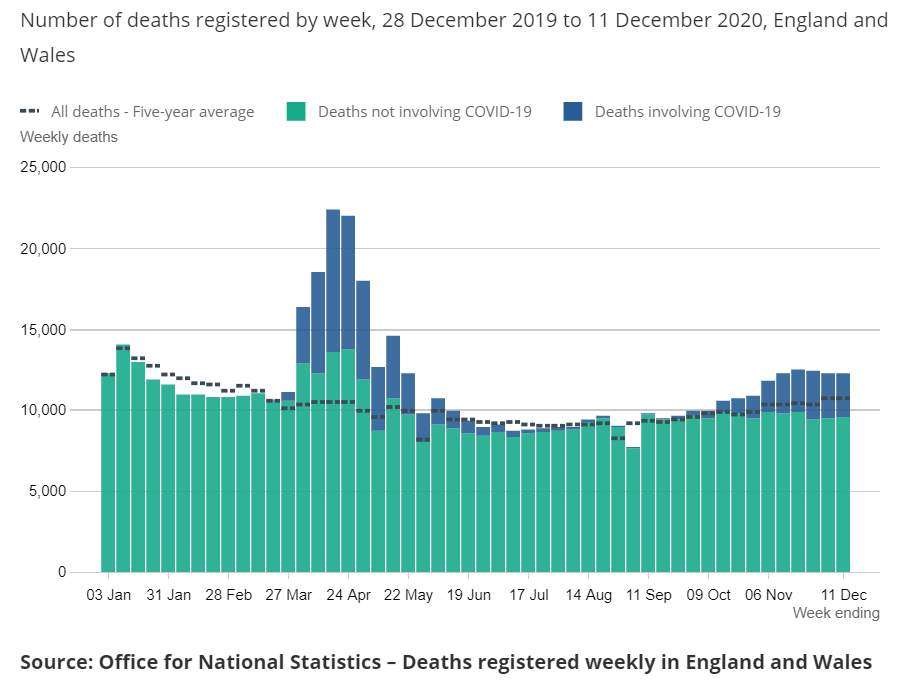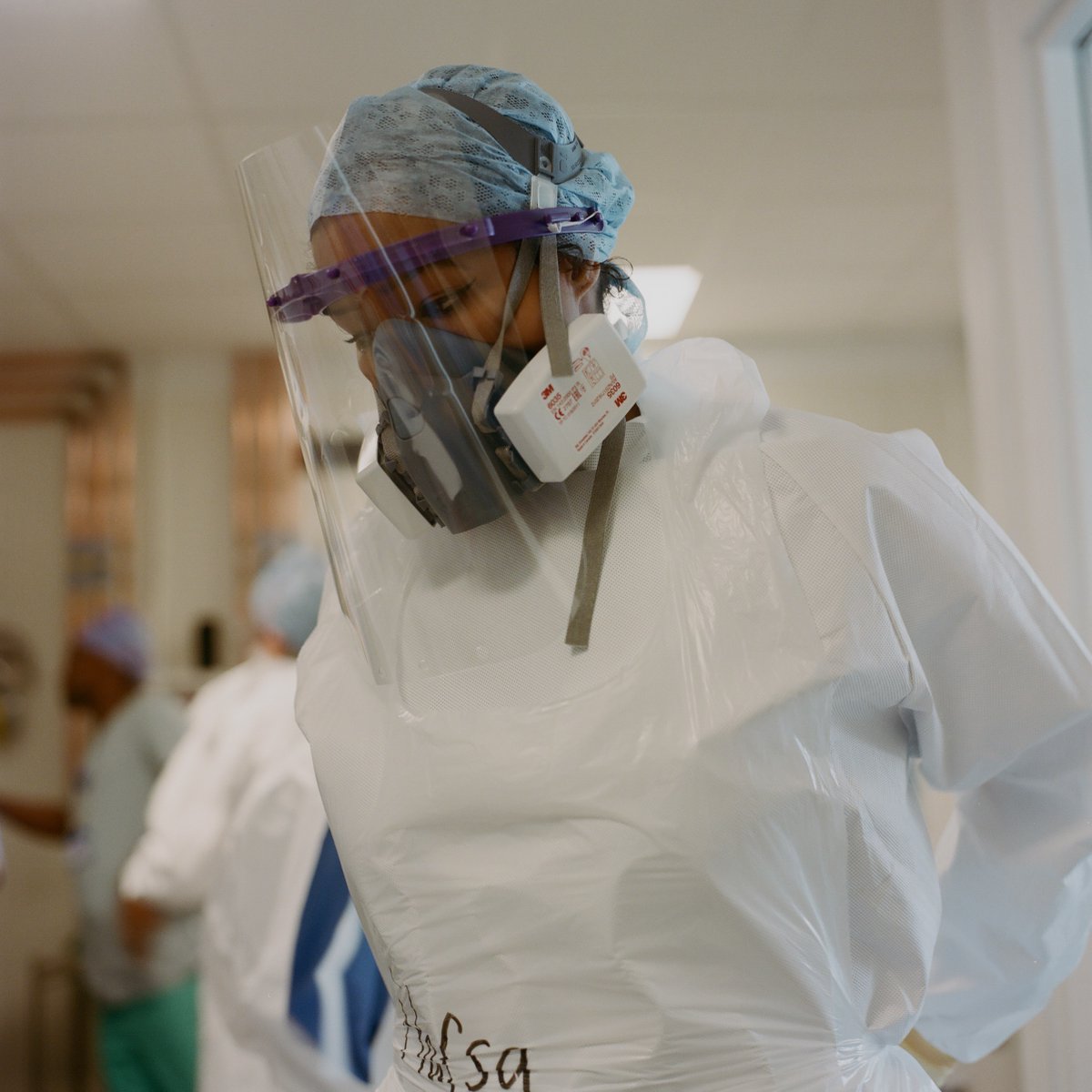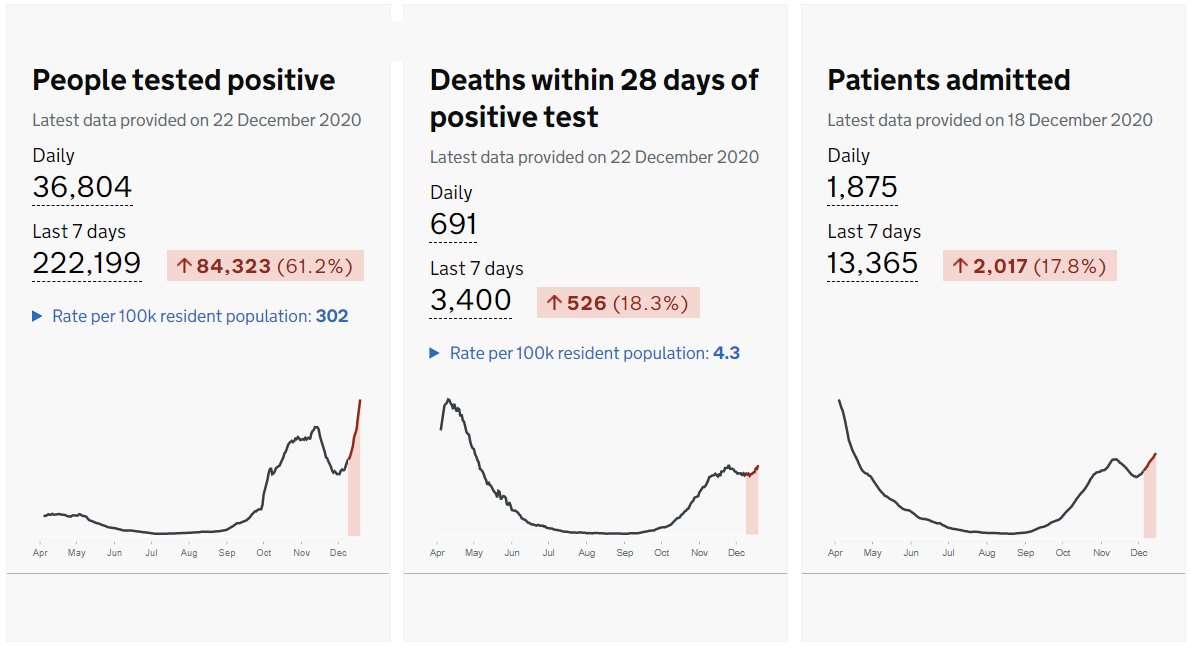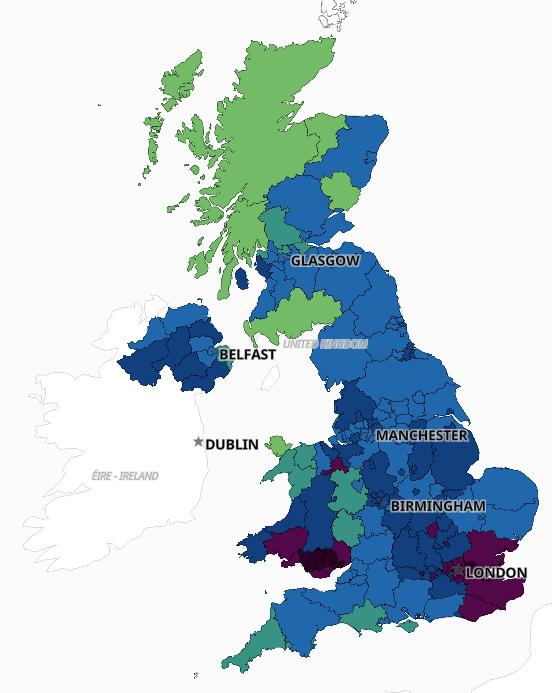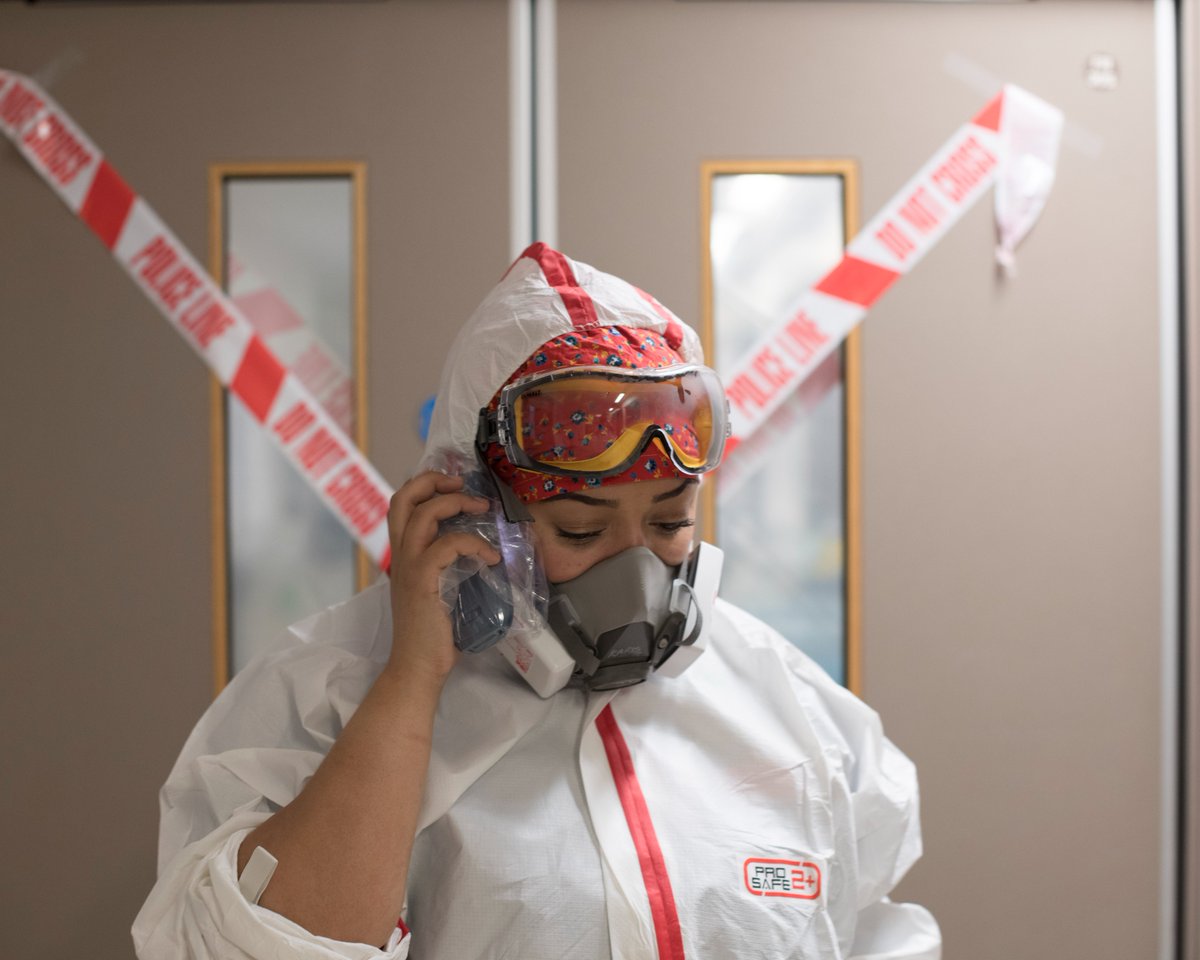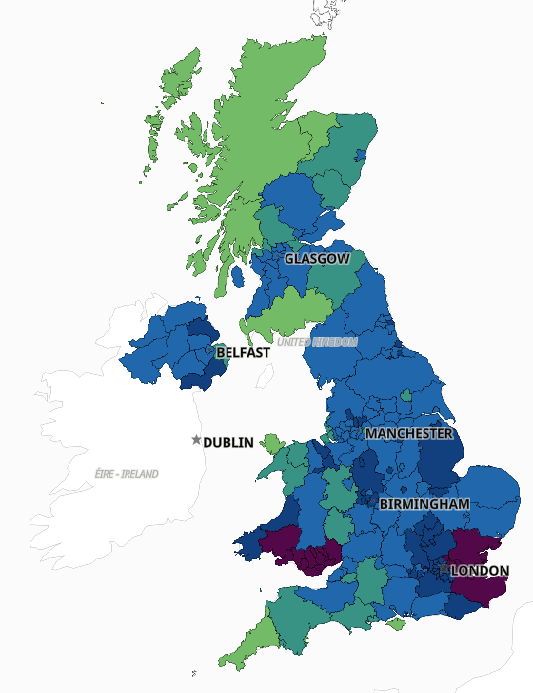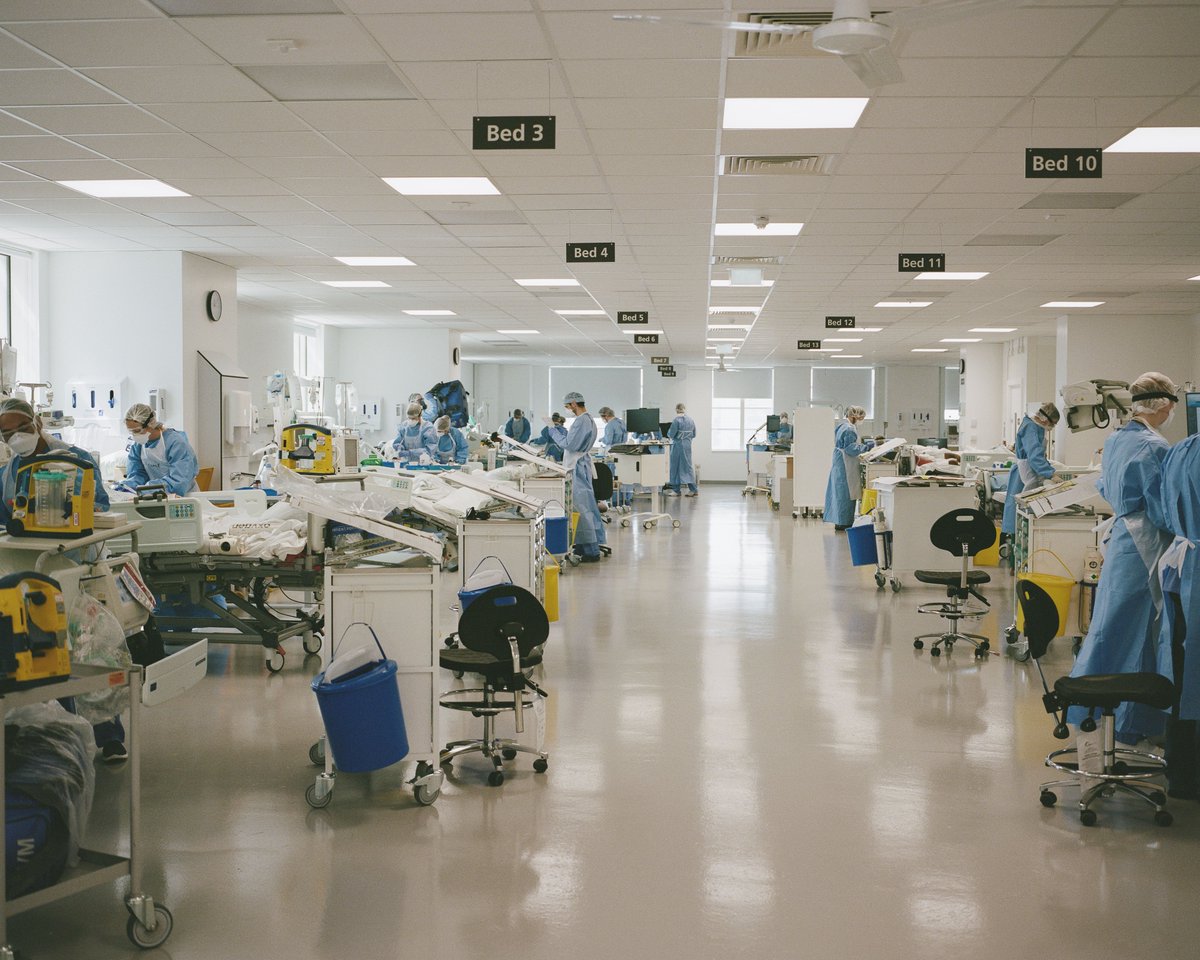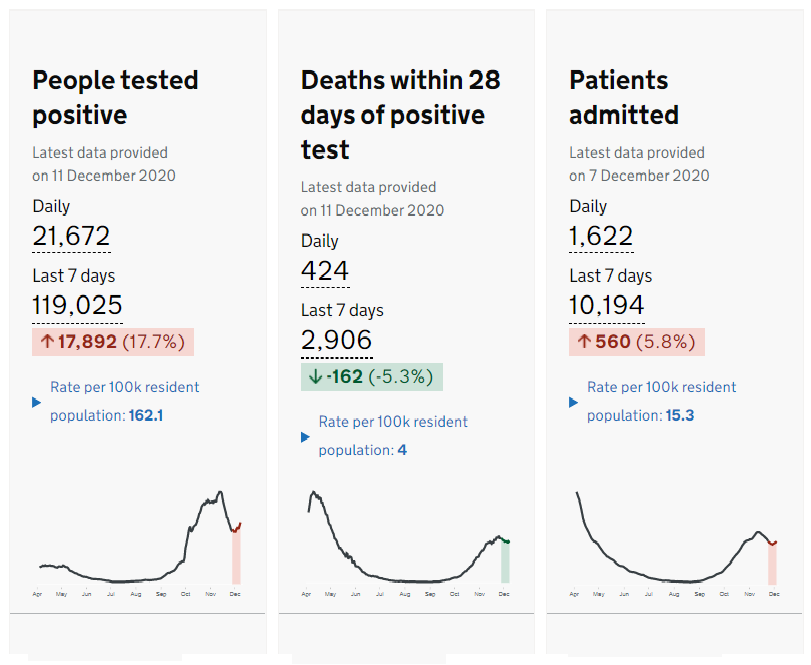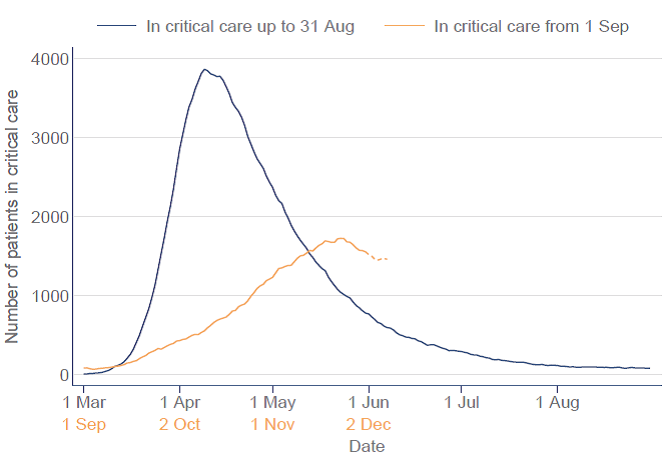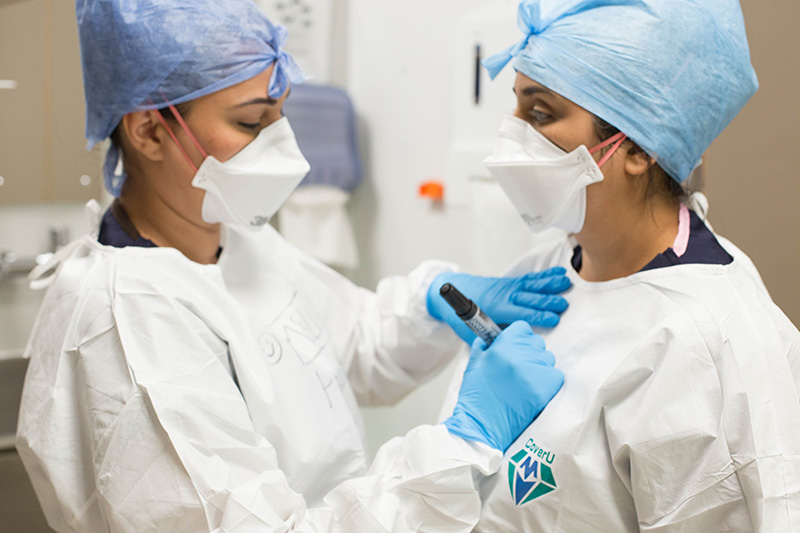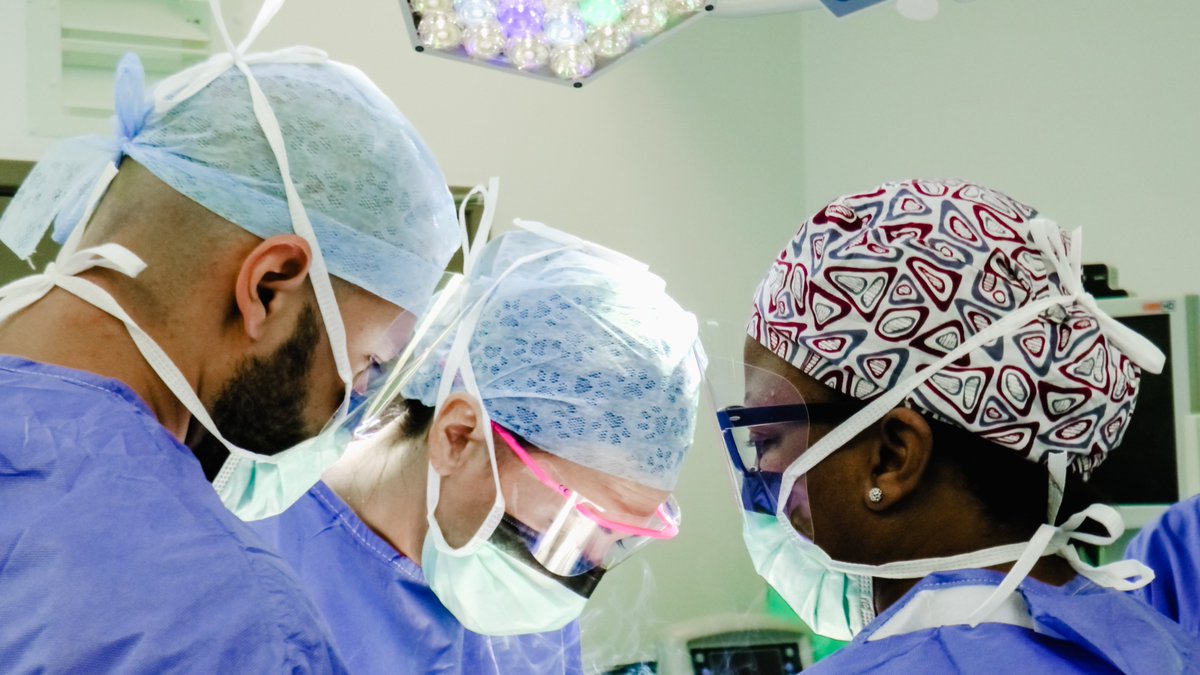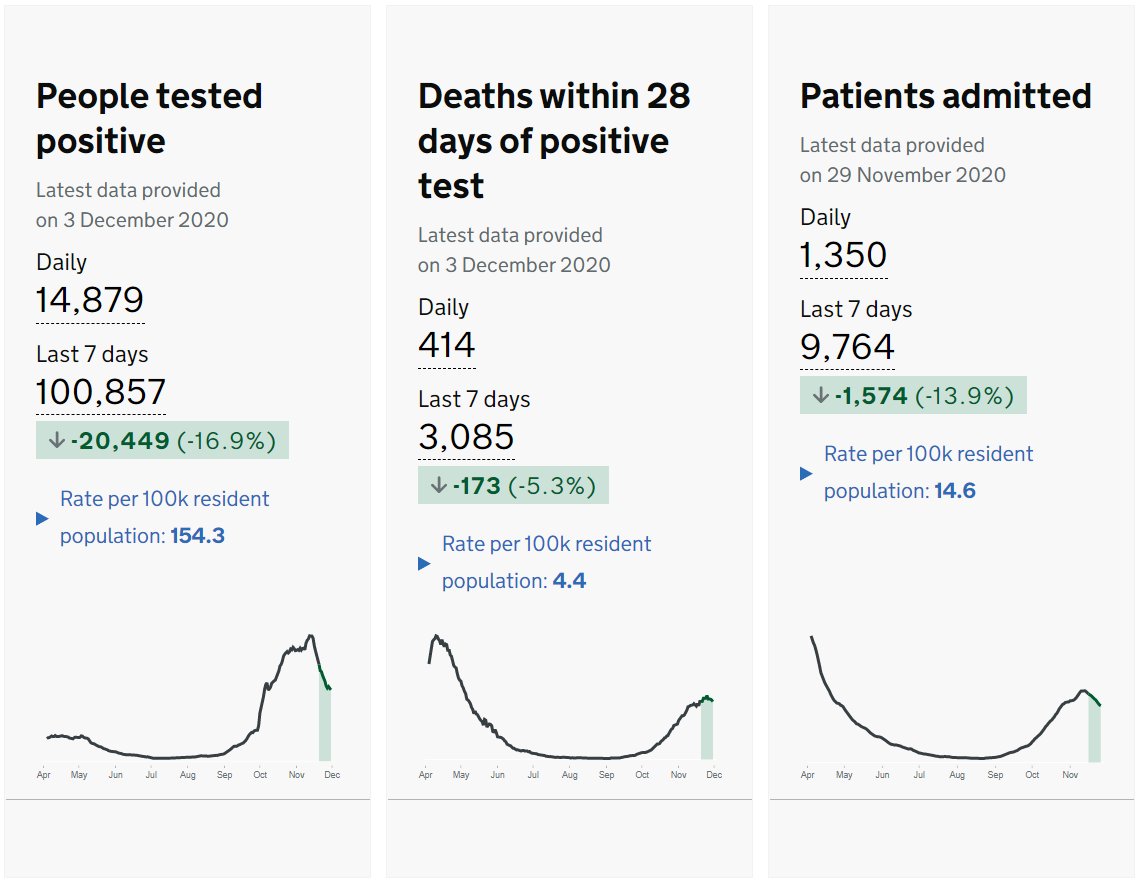
Media reports of pressures on the NHS are all true. The situation in London is now MUCH worse than the first wave, and still deteriorating. Sad to see long queues of ambulances outside the hospital where I work. Re-visiting reasons for hope and also words of caution…. 1/10 

1. We understand the disease: The baptism of fire in the spring taught us how COVID-19 behaves. NHS teams have reflected on what worked and what didn’t. For example, we know we will see problems like blood clots and kidney damage more often than usual. 2/10
2. Treatments are more focused: The media furore around wonder drugs was a massive distraction but @NIHRresearch and others have rapidly delivered major clinical trials which busted a few myths eg hydroxychloroquine and showed simple things can save lives eg dexamethasone. 3/10 

3. Escalation plans: The vast planning exercise before the first wave had a lasting impact. Our escalation plans for the second wave are tried, tested and improved. We know how best to use our real estate making patient care more efficient. 4/10
4. Logistics are in place: Equipment supply chains were very strained in March. We came close to running out of PPE, ventilators, dialysis equipment, clothing ('scrubs') and lots more. Supply chains are now more resilient. Supplies and equipment are not a big worry. 5/10 

5. Calm routine: In the first wave our planning was very excitable. Sometimes it showed. We wasted time managing people with ill-conceived ideas which weren't going to work. This time we know what to do. Staff are well drilled. New staff are trained quickly and efficiently. 6/10 

6. We can see light at the end of the tunnel. Vaccination programmes are our best hope and these are ramping up fast as new vaccines come on line. Feel very grateful to get mine this week. #DocsForVax 7/10
BUT there are several notes of caution. We must take these seriously to avoid unnecessary loss of life. The new variant of the SARS-CoV-2 virus is more contagious and LOTS of people out there right now don’t realise they are infecting others. 8/10
Expectations on NHS staff are too high. We are trying to deliver the usual NHS service (cancer, stroke, heart disease etc) and admit every COVID patient while we see crowded high streets and people go skiing in Switzerland. 9/10
Morale of NHS staff is badly affected by sceptics. In particular, MPs who argue against public health measures while their local hospitals are in crisis. Please call this out wherever you see it. Thank you for everything you are doing. Proud to be your NHS 💙💙💙 10/10 

I should add that many superb Members of Parliament are doing an excellent job as educators and role models. Won't name individuals in case I miss any out, but thank you.
• • •
Missing some Tweet in this thread? You can try to
force a refresh

